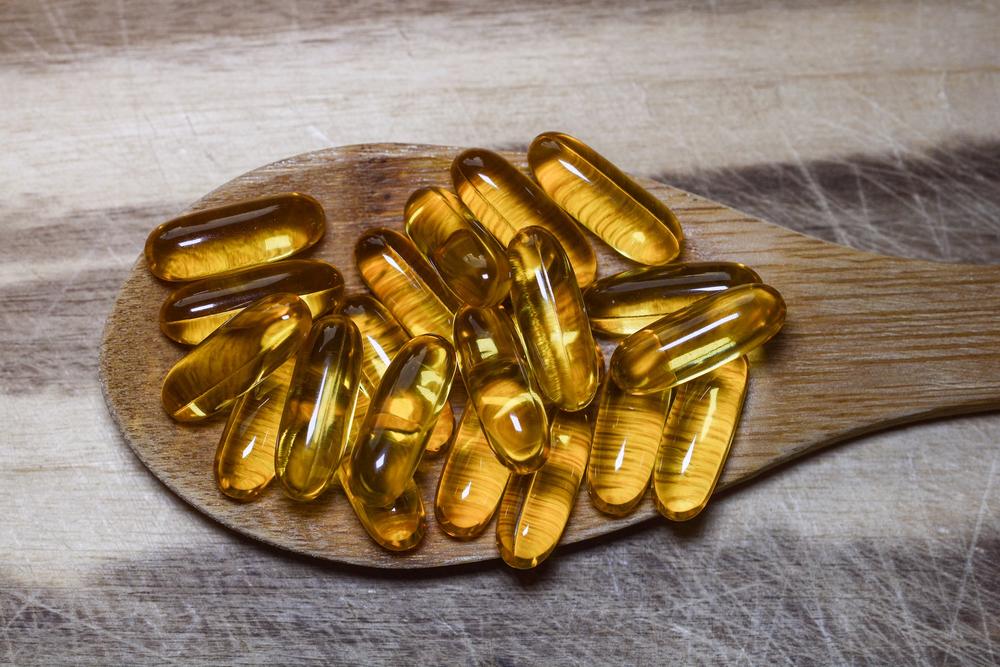How Plant Based Is Your Omega 3?
It’s never just a simple as going to the store and buying the product you want. Not in my experience at least. I always used supplements even before I was following a predominantly plant-based diet, but once you make that commitment, suddenly things aren’t so simple anymore.
Omega 3 only comes from fish, right?

My father in law gifted me a huge tub of pure wild Alaskan Salmon fish oil capsules because he knows I’m into healthy eating, but when I look at the container all I can think of is all the poor fish who had to die so that I can be marginally more healthy.
Also the idea that the fishing boats have to go farther and farther to find uncontaminated fish doesn’t make me feel good either. I live in Ireland, is the salmon oil no good here? Is Alaska farther away from all the human pollution in the sea? I don’t know, it’s closer to Fukushima than we are, so maybe it’s less safe, who knows?
Then there is the dilemma, did the fish die for nothing if I throw it away? Shouldn’t I take them to at least make it so that it wasn’t all wasted? I took a few of them but eventually decided not to, I mean, after all, the fish are dead now, what difference will it make to them if I swallow the oil extracted from their dead bodies or not?
So I began looking for alternative sources, but are there any?
Thankfully, the answer is yes. Plenty. And one of these is algae.
Is algae plant or animal? Is it really vegan?

Now according to Science Daily they are both plant AND animal, although strictly speaking they don’t entirely fulfil the criteria for either. To satisfy myself on the ethics of consuming something, my go to reference point is usually, ‘does it have a central nervous system?’ The answer here is no. No it doesn’t. So on this score at least, I was happy to proceed.So my first thought when I came across this was, ‘algae? Is there a question mark over this as to whether it’s plant or animal?’. It turns out it’s not so much a question mark as a difficulty in terms of definition. Algae have both plant and animal behaviors, but really belong to neither class. Therefore, although you can’t say with strict scientific accuracy that it is a plant, neither can you say that it belongs to the animal kingdom.
Algae grows in water. Is it free from pollutants?
Next question, is it safe? I mean after all, if it comes from the sea or even land based bodies of water, isn’t it subject to all the impurities that the unfortunate fish and other sea creatures are? Well yes they would be, except that certain producers make sure to farm their algae outside of the sea or open areas of water in water that is tested for purity and safety. So from the right supplier, you can cross this doubt off your list as well.
This also begs the question as to which jurisdiction your supplement is produced in. Always read the label!
Does your vegan supplement contain beef gelatin?

And then finally, what about the capsule itself. Years ago we never thought about this, not until we realized that the gelatin capsules were coming from animal sources such as cows. Blech, even when I used to eat meat I didn’t like the thought of this and used to avoid those like the plague.
So your omega 3 supplement may be from non-animal algae, may come from a safe, tested water source and from a jurisdiction with strict food controls, but your capsule may be taken from the parts of a slaughtered cow you don’t even want to think about. So make sure that your capsule is made from vegetable glycerin or some other non-animal derived substance.
Our recommendation
So how about if you had an omega 3 supplement that was produced in Canada, from land farmed algae and encased in vegetable glycerin capsules by a company registered with the Vegan Society (the organization that invented the word ‘vegan’). Wouldn’t that be great?
It sure would. The Deva brand is the one we recommend. You simply can’t go wrong.
Another of our favorites is this awesome brand here:
Thanks for reading and don’t forget to spread the word by sharing.
Hungry for more information? Check out these references:
www.dictionary.com/browse/algae
*Walser B, Stebbins CL. “Omega-3 fatty acid supplementation enhances stroke volume and cardiac output during dynamic exercise.” Eur J Appl Physiol. 2008 Jun 18.
*Sidhu KS. “Health benefits and potential risks related to consumption of fish or fish oil.” Regul Toxicol Pharmacol. 2003 Dec;38(3):336-44.
*Lauritzen, L. et al. The essentiality of long chain n-3 fatty acids in relation to development and function of the brain and retina. Prog Lipid Res, 2001. 40:1-94.
* Koletzko B, Lien E, Agostoni C, Bohles H, Campoy C, Cetin I, Decsi T, Dudenhausen JW, Dupont C, Forsyth S, Hoesli I, Holzgreve W, Lapillonne A, Putet G, Secher NJ, Symonds M, Szajewska H, Willatts P, Uauy R. The roles of long-chain polyunsaturated fatty acids in pregnancy, lactation and infancy: review of current knowledge and consensus recommendations. Journal of Perinatal Medicine. 2008;36(1):5-14.
* Eilander A, Hundscheid DC, Osendarp SJ, Transler C, Zock PL. Effects of n-3 long chain polyunsaturated fatty acid supplementation on visual and cognitive development throughout childhood: A review of human studies. Prostaglandins, Leukotrienes and Essential Fatty Acids. 2007;76:189-203.
* Specker, B. et al. Differences in fatty acid composition of human milk in vegetarian and nonvegetarian women: long-term effect of diet. J Pediatr Gastroent Nutr, 1987. 6:764-8.
* Heude B, et al. Cognitive decline and fatty acid composition of erythrocyte membranes – The EVA Study. Am J Clin Nutr, 2003.
* Salem N Jr, et al. Mechanisms of action of docosahexaenoic acid in the nervous system. Lipids, 2001. 36:945-59.

Thanks for this! Important to know really what product it is you are consuming.